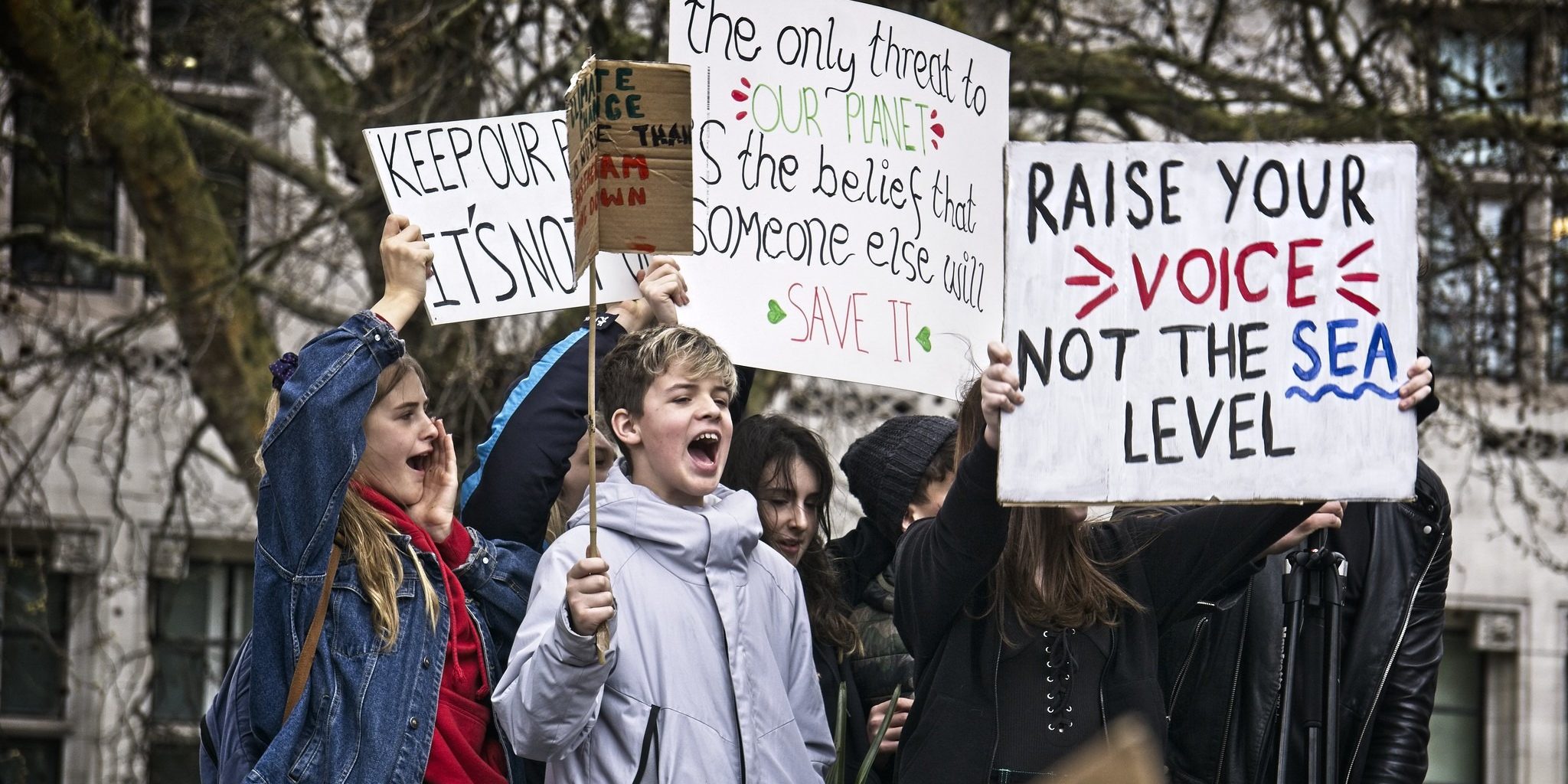How well-educated are we about the climate crisis?
The pressure is on for young people to sort out the climate crisis. According to Mental Health UK, climate anxiety affects 70% of 16–29-year-olds to some degree, compared to 59% of 50-69-year-olds. Young people will be affected by the impacts of climate change more severely and for a larger proportion of their lives than older people, although the effects were set in motion years before they were born. But just how well are we really educated about the climate crisis?
I think that a lot of young people would claim to be extremely well-educated about the climate crisis, particularly compared to previous generations. Despite this, research by the Department for Education (DfE) has found that secondary school students have “very poor” understanding of key climate change concepts.
Research from Greenpeace shows that 78% of primary school-aged children in the UK are worried about the climate
The question is not whether we are better educated on the matter nowadays than in the past, but rather whether even that is sufficient. It’s a matter of whether the formal education we receive on the climate crisis is enough, or if we are forced to supplement it with our own independent research – something not every person may be inspired to do.
Although the government states that “topics related to climate change already feature across the curriculum at primary and secondary school,” a quick search of the National Curriculum Framework for Key Stages 1 and 2 reveals that the word “climate” only appears one time. It can be found in the Key Stage 2 Geography guidelines, stipulating that students must learn about “climate zones, biomes and vegetation belts, rivers, mountains, volcanoes and earthquakes, and the water cycle.”
Despite climate change not being an explicit requirement of the national curriculum for primary schools, it is a subject that children are curious about and learn about through other sources. Areeba Hamid, Co-Executive Director for Greenpeace UK, said on the matter: “Children hear frightening information about our changing climate from many different sources. Helping them to make sense of it all, and emotionally preparing them … can be a challenge.”

Image: Garry Knight / Flickr
Research from Greenpeace shows that 78% of primary school-aged children in the UK are worried about the climate. Outside the classroom, the news is unavoidable, and many are tangibly affected by the climate crisis. Inside, there is no requirement by the national curriculum to address and explain the fears they may be developing.
We need to counteract the bombardment of climate fear with considered education, enabling greater comprehension of the issue and an awareness of the individual actions that can be taken to lessen environmental damage. This must start from an early age to foster a nuanced understanding that develops as each individual progresses through the education system.
In light of this, there have been renewed calls for more thorough climate education, particularly surrounding the strategies that could be implemented to mitigate future consequences of a continually warming planet.
Across the National Curriculum Framework for Key Stages 3 and 4, the phrase “climate change” can be found just twice. The DfE found that Year 11 students tended to underestimate “the impacts having pets and eating meat have on greenhouse gas emission, but ‘overestimate’ the effect of recycling and switching off lights.” This speaks to a curriculum-wide issue of an underrepresentation of climate change.
To ensure everybody benefits from the same integration of climate education, it should be cemented as a requirement within all curricula
In an attempt for greater climate inclusion, a new Natural History GCSE is being introduced across the UK – the result of a campaign led by naturalist Mary Colwell. The government says: “The new Natural History qualification will enable young people to explore the world by learning about organisms and environments, environmental and sustainability issues, and gain a deeper knowledge of the natural world around them.”
On the surface, this seems to be a significant step toward integrating more in-depth climate education into secondary schools. On the other hand, the efficacy of the course relies on its uptake by students (although the research by Mental Health UK suggests that there would be many students open to learning more about climate change). The implementation of the course also requires teaching staff able to deliver the content across all UK secondary schools, and, fundamentally, it does not address the UK-wide lack of cross-curricular climate education.
Although there appears to be a widespread cultural awareness that climate education needs improvement, it has not yet sparked a full curriculum overhaul. Personally, I experienced in-depth cross-curricular teaching about the climate crisis, but I cannot speak for everybody. To ensure everybody benefits from the same integration of climate education, it should be cemented as a requirement within all curricula.

Comments